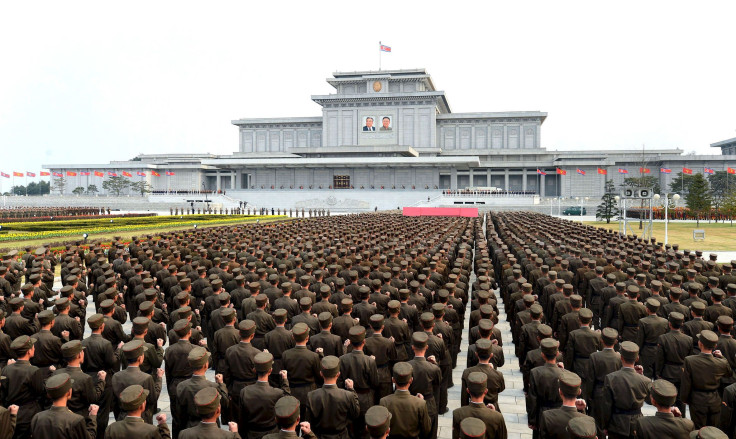North Korea Violating UN Sanctions By Providing Military Support To Angola: Report

North Korea is providing military goods and training to Angola, in a move that allegedly violates the sanctions implemented against it by the United Nations, the Washington Times reported Thursday, citing diplomatic sources. The support from the reclusive Korean country included marine engines and replacement of patrol boats sold to Angola’s military, the report added.
North Korea's Saengpil Associated Co. has been shipping engines and replacement parts for about 18 patrol boats to Angolans since 2011, the Washington Times reported, citing sources, who knew details of Angolan military transfers. Saengpil is part of the Green Pine Associated Corp, which has faced U.N. sanctions in the past.
The latest report comes soon after a U.N. panel found that Pyongyang had violated the 2009 sanctions imposed against it for similar military support to Uganda and Tanzania. Following this, both the countries had stopped the collaboration.
The 2009 sanctions, which were implemented after North Korea conducted an underground nuclear test, had banned “exporting technical training, advice, services, or assistance related to the provision, manufacture, maintenance or use of all arms or materiel,” the Washington Times reported. Fresh sanctions were also issued in 2013 after the country threatened to launch a nuclear strike against the U.S.
“North Korea has found a very profitable market for proliferating the vast array of conventional, Soviet-era weapons that it continues to manufacture indigenously,” Bruce E. Bechtol, a former official from the Washington-based Defense Intelligence Agency, who specializes in North Korean issues, said, according to the Washington Times, adding: “North Korea is selling everything from tanks to rifles and ammunition, and is also refurbishing many of these older systems for a number nations in Africa.”
The representative for Saengpil, which is getting ready to ship 4.5 tons of patrol boat repair materials, was identified as a person named Kim Hyok-chan, who is believed to be leading the arms deals. Kim has been reportedly working in Angola since 2008 and is also a second secretary at the embassy of North Korea in the South African country.
The agreements for the patrol boats date back to 2009 and the construction of the boats -- which started in March 2011 -- was named PB 100s. The shipping from Saengpil is believed to pass through a container to Angola's Luanda Bay from Beijing New Technology Trading, a North Korean company in China.
Beijing New Technology Trading was allegedly used by representatives of the North Korean firm Changgwang Trading in China. Both the U.S. and the U.N. had imposed sanctions against Changgwang Trading.
Pyongyang is also in the process of selling eight boat engines, disguised as exhaust-gas-related equipment, to Angolans, the Washington Times reported. The engines will be reportedly sent to a military company known as MGA/FAA Company Angola.
The report added that North Korean military instructors reach Angola in March and return to North Korea in December. Ten of the advisers are reportedly providing training in martial arts and firearms to the Angolan guards at the Futungo section in the capital city of Luanda while 30 others are providing firearms training at a training camp of the guards in Benfica section of the city.
“As in other regions worldwide, North Korea has compiled a sophisticated set of front companies in a network that continues to generate money for the Kim regime,” Bechtol, who currently teaches at Texas' Angelo State University told the Washington Times, adding: “While arms sales to Iran and Syria have tended to lead the headlines regarding North Korea’s proliferation, their activities in Africa are also very important in bringing in funds and commodities.”
© Copyright IBTimes 2025. All rights reserved.






















